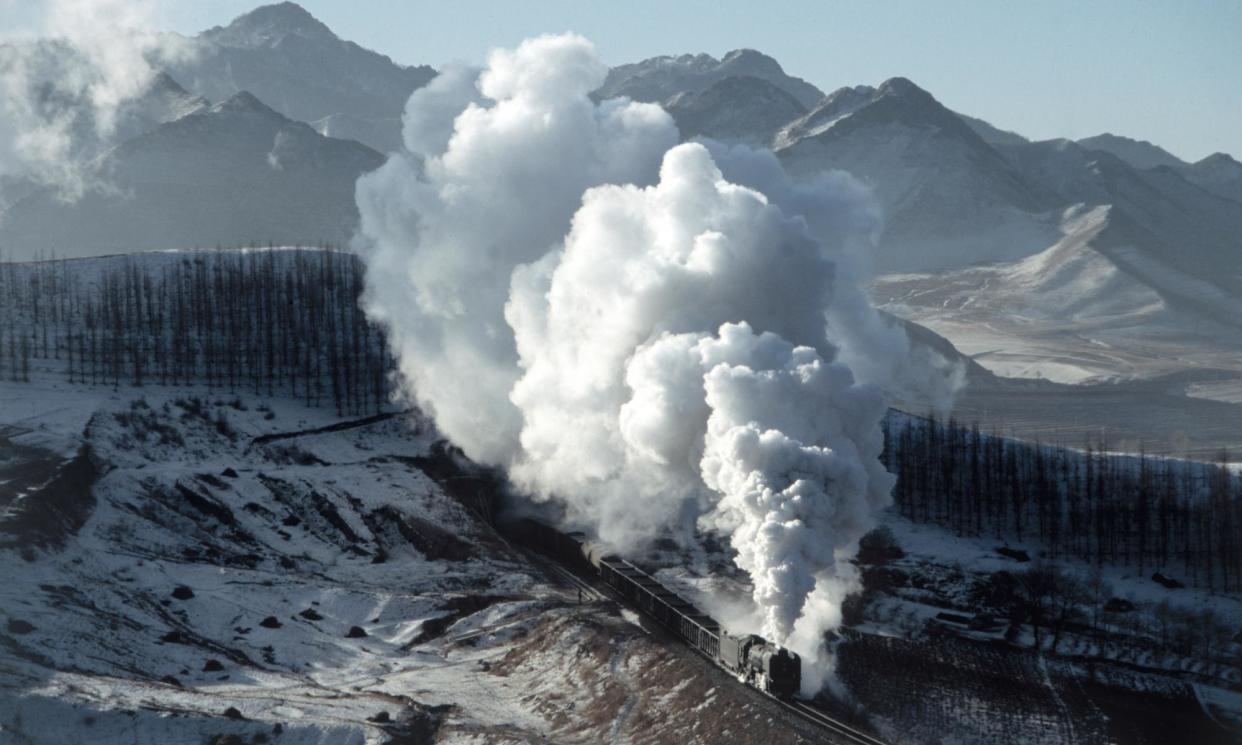The Cautious Traveller’s Guide to the Wastelands by Sarah Brooks review – a wild journey

In a Victorian era that never was, the Wastelands are a vast expanse stretching between China and Russia; a zone of hallucinations and terrors that nevertheless sticks obediently to its boundaries, marked by huge walls of stone. Biologically rich, the Wastelands are empty of humankind, traversed only by a gigantic steam train sealed against possible incursion and staffed by the daring or desperate. Passengers travelling from Beijing to Moscow or vice versa must sign waivers absolving the company in case of injury or death. The only guide to the journey is the title volume, which provides scant comfort since its author, Valentin Rostov, subsequently disappeared in mysterious circumstances.
The cautious reviewer can perhaps classify this novel as a steampunk climate fiction eco-fable, with a dash of romantasy and an anti-capitalist bent. It could just as easily be a young adult novel as one for older readers; a key character, Zhang Weiwei, is a teenage orphan who was born on board and knows no other reality than the ever-lumbering loco. Strange things happen out in the Wastelands, and it’s advisable for passengers, whether in first or third (there is no second class), to keep the shades down, or at the very least avoid looking out of the windows. A sort of fever has been known to afflict travellers, and the staff have tranquiliser darts for that eventuality. Up in the gun turret is a sniper, and the stokers are primed to keep the wheels turning no matter what. Overseeing the journey is the female captain, a largely absent, God-like figure. Much more visible are two black-clad functionaries from the Trans-Siberia Company, always one Chinese, one Russian to obviate bias. Weiwei calls them the Crows.
The train, a little world in itself, stands for civilisation or modernity, as it strives to keep entropy at bay
The train, a little world in itself, stands for civilisation or modernity, as it strives to keep entropy at bay with technological supremacy, arrogantly sealing itself off from natural processes but also from potential benefits. The company, naturally, is more keen on profit than transparency or ethics. First-class ticket holders form a variety of types: a lively Russian countess heading home with her maid; a snooty naturalist; a languid, foppish Frenchman and his wife; a surly cleric. More mysterious is the young woman travelling under an assumed name. Third-class passengers remain largely undifferentiated.
Related: River East, River West by Aube Rey Lescure review – all change in China
Only Weiwei passes smoothly between classes, running errands, all eyes and ears. Everyone is uneasily aware that the last passage ended in catastrophe; the reinforced window glass failed. Whatever each passenger’s purpose in embarking on the voyage, within days the train is in serious trouble, losing power and diverted on to a disused line in search of water. Henry Grey, the naturalist, seizes his chance to disembark to collect samples, an activity portrayed as a form of theft, though he sees it as a quest both scientific and spiritual; the Wastelands are a new Eden, and he believes he has spotted its Eve. Though Grey’s actions risk the entire enterprise, a shadowy stowaway, detected only by the ever observant Weiwei, may have already invited doom into the panelled carriages.
As the story takes an ever more phantasmagorical turn, Sarah Brooks conjures the sort of CGI imagery you can almost see unfolding on screen; tattoos writhe, vines and veins wriggle, creatures both beautiful and terrifying are glimpsed as the train limps on its way. She almost runs out of ways to describe burgeoning nature rising rampant over puny human concerns. Naturally, the Wastelands are not somewhere to be rushed through but lingered in, even if the cost turns out to be high and the destination unknown. With its light handling of serious themes, this is a vivid and imaginative trip rather than a weighty one. But then inessential journeys are often the most fun.
• The Cautious Traveller’s Guide to the Wastelands by Sarah Brooks is published by Weidenfeld & Nicolson (£16.99). To support the Guardian and Observer, order your copy at guardianbookshop.com. Delivery charges may apply.


